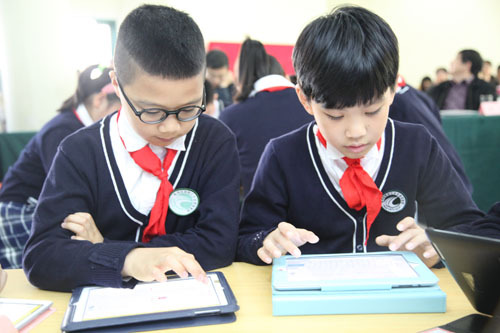
Given all of the issues China faces with its rural poor, Internet access presents both massive opportunity and enormous challenge.
The Ministry of Education in China has announced its mission to provide all teachers and students (כ 10 million teachers and over 50 מיליון תלמידים) with Internet access by 2015. China has the largest Internet user population in the world and hence the initiative provides great potential for edtech companies.
Education is centralized by the government in China. נכון לעכשיו, its traditional learning model of face-to-face instruction in classrooms is still dominant in K-12 schools. מורים’ performance is measured by student test scores. There are many challenges China must overcome in order to achieve its online goal, such as regional differences in e-learning and teachers not willing to move to online.
DR. Gaofeng (לסטר) Ruan, a visiting professor at Western Illinois University and an assistant dean of the College of Online Education at Zhejiang Normal University, is a member of a Zhejiang provincial expert committee working on standards for K-12 teacher online training programs. One of Lester’s responsibilities at the college in China is to design and implement online programs for K-12 teachers from both the Zhejiang province and all over China. He has worked on several programs over the past 3 שנים, and is now piloting Edmodo. I am pleased to welcome him to גלובל החיפוש לחינוך today to discuss China’s move online.
Long term, how do you see the impact of online learning on the Chinese economy and political system?
בטווח הארוך, the digital revolution not only flips the traditional teaching approach, but also impacts the learning content because of massive learning material available online. נוסף על כך, alongside improved digital citizenship, a large number of well-informed technology information based jobs will be created related to digital communication technology and skills, וחברה אינטראקטיבית ובריאה יותר תצא, which will serve as a strong propeller for the Chinese economy and the expanding political path.
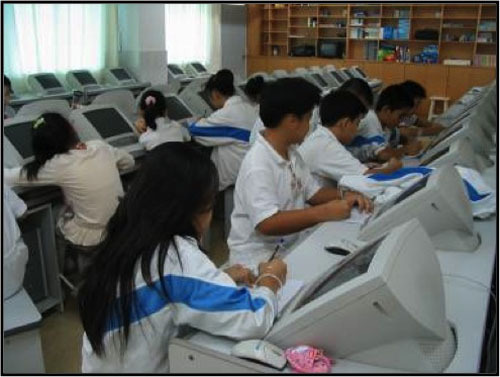
What are the challenges to provide all teachers and students in China with Internet access, particularly in your rural areas?
ב 2012, the Chinese Ministry of Education set a new target to provide Internet access within K-12 schools nationwide by 2015, as concerns of networking primarily lie in the backward central and west regions. In the well-developed east, almost all K-12 schools have Internet access; schools in the areas of Beijing, שנחאי, Zhejiang, וכו '. are equipped with advanced facilities and high speed Internet connection that might be at the top of the world.
In relation to the concern about Internet coverage in the central and western suburban schools, the first obstacle is funding. The former administration promised to allocate 4% of provincial GDP for education; yet education funding was very limited in the central and west regions due to the slow economy. Presently, charity events organized by private and public firms are raising money to fund equipment for these regions. Donations were sponsored by Li Ka Shing foundation and the NGO (non-government organization) program to provide large quantities of hardware such as computers, satellite communication devices and mobile devices to assist students in technology-enhanced learning.
The second obstacle is the challenge of technology solutions. A number of schools are scattered in remote areas and Internet Service Providers (ISPs) are reluctant to build infrastructures. Several thousand kilometers of cable and fiber optics for only one school is not cost-efficient for ROI-sensitive commercial operations. In initial approaches, especially in some Ministry backed projects, satellite communication is widely used to provide Internet access for rural and remote schools, but to ensure all these schools are connected to the Internet, technology innovation with higher ROI is needed.
Our third obstacle is the restrained capacity of teachers, i.e. relatively few teachers in the central and west regions have the appropriate understanding of ICT (Information and Communication Technology) or its appropriate integration into everyday classroom instruction, לכן, teacher professional development training has become the priority of a “National Teacher Training Program” in recent years. לדוגמא, על 90% of ministry educational training funds were earmarked for the central and west regions. יתר על כן, provincial training programs supported by local governments were taking place as well. באותו הזמן, other international and national organizations are involved in teacher professional development in digital literacy, such as UNESCO and Western Sunshine Foundation.
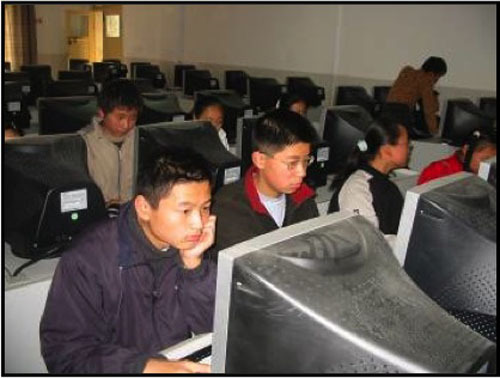
Is the online learning plan intended to co-exist with the traditional learning model or is it intended to replace or upgrade it?
According to the newly commenced project of “Information Technology Application Competence Improvement”, K-12 schools and teachers are working on more effective ways to integrate technology into the classroom, and Blended Learning, combining face to face instruction and online teaching, has been the dominant approach. כמו כן, in the east and other advanced provinces, blended learning solutions have grown into a hot research topic. Some schools build their Learning Management Systems to practice the blended approach while others adopt social learning platforms, such as Edmodo.
מצד השני, online learning as an independent learning approach has been widely used in teacher professional development, and it’s been formally established as the teacher training mode by authority. לדוגמא, in the Ministry funded “National Teacher Training Program”, על 15,000 K-12 teachers complete professional development programs via the Internet annually. בנוסף, great numbers of provincial training programs also take place through the Internet. In Zhejiang province, על 80,000 people participate in online training each year. בנוסף, the Ministry of Education is now working to build a nationwide online community of practice for K-12 teachers. Within 5 years they hope to boost communication, שיתוף, collaboration and informal learning among peers.
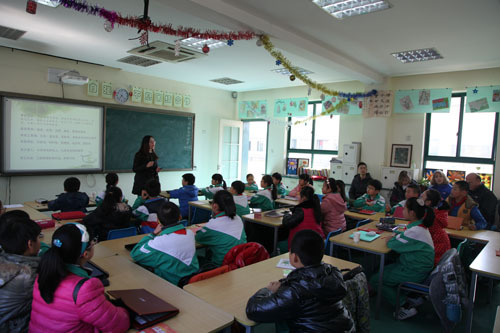
You are also piloting Edmodo in China. Can you tell me more about that?
The Edmodo pilot project was launched on November 16th 2013. The department head of the Ministry of Education visited the initial launching. Major supervisors from the Educational Technology Center of Zhejiang Province were present at the conference, as well as reputable scholars. A brief demonstration and training was introduced during the conference by our long term partner (Caihe Third Elementary). After my return to China in December, I visited the partner school and learned that teachers are in the learning phase in terms of how to best use Edmodo in class. The academic timeframe in Chinese schools has led to a slow adoption of Edmodo, as teachers are more willing to work with Edmodo at the beginning of a semester. In the course of spring semester, which starts in March and ends in June, our partner elementary school plans to set out an official Edmodo user training in cooperation with expert trainers from my division. In addition to Caihe Third Elementary, Zhejiang Normal University Education Technology Institute has also employed the Edmodo platform for the graduate course of “Modern Distance Education.” בינתיים, Jinhua Second Middle School and Jinhua vocational technical college Faculty of Art both are confirmed to use the Edmodo platform for online teaching.
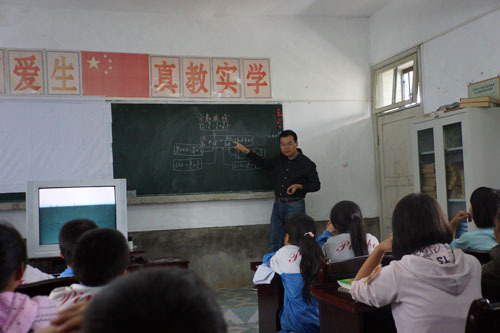
What do you see as the pros and cons of online learning from a learning standpoint?
Online learning gives several advantages:
- Extending instruction outside of the classroom: E-learning accessibility allows students to work in their own time and location at their own pace.
- Online communications provide teachers and learners diverse ways to interact. Teachers can give tailored instruction to the individual target learners of all levels.
- Advantages in management and student evaluation: by means of online platforms, teachers are freed from physical labor such as student assignment submission. בנוסף, the platforms facilitate the archiving of students work, giving teachers a comprehensive evaluation of each individual student.
Concerns about online learning include:
- Digital citizenship skills need to be taught. Teachers must educate students on the appropriate ways to behave online in terms of being responsible digital citizens.
- The digital divide: Students in the developed areas have earlier access to ICT versus those students in underdeveloped regions. Advanced technology and up-to-date equipment in the eastern area will increase this gap even further.
How will the role of the Chinese teacher change in this new model? Do you see any resistance to this change and if so, מה? What additional professional development will be needed for Chinese teachers?
Teachers should take the lead roles in online instruction design and integration of resources available to advance learning. עם זאת, both the online learning understanding and technical skills are still a concern regarding the orthodox educators. The current Chinese education system still deems students’ test results as an important measure to evaluate teachers’ ביצועים, which will keep some teachers from adopting innovative yet risky instruction methods. To address these situations, our Ministry of Education has designed a tailored training program (the “Information Technology Application Competence Improvement” פּרוֹיֶקט) aimed at all teachers countrywide. This competence enhancing project will cover topics like safe web surfing, כישורי תקשורת, appropriate digital teaching aids selection and authoring, technology enhanced instruction design and managing online students, וכו '. The entire training project is planned to be implemented for teachers of all subjects and all grades in September 2014 and completed within 4 שנים.

Photos courtesy of Gaofeng Ruan and Zhejiang Normal University
בגלובל החיפוש לחינוך, להצטרף אליי ולמנהיגי מחשבה מוכרת בעולם כולל סר מייקל ברבר (בריטניה), DR. מיכאל בלוק (ארה"ב), DR. ליאון בוטשטיין (ארה"ב), פרופסור קליי כריסטנסן (ארה"ב), DR. לינדה דרלינג-Hammond (ארה"ב), DR. Madhav אוון (הודו), פרופ 'מיכאל Fullan (קנדה), פרופ 'הווארד גרדנר (ארה"ב), פרופ 'אנדי הארגריבס (ארה"ב), פרופ 'איבון הלמן (הולנד), פרופ 'קריסטין Helstad (נורווגיה), ז'אן הנדריקסון (ארה"ב), פרופ 'רוז Hipkins (ניו זילנד), פרופ 'קורנליה הוגלנד (קנדה), הכבוד ג'ף ג'ונסון (קנדה), גברת. שנטל קאופמן (בלגיה), DR. Eija Kauppinen (פינלנד), מזכיר המדינה Tapio Kosunen (פינלנד), פרופ 'דומיניק לפונטיין (בלגיה), פרופ 'יו לאודר (בריטניה), פרופ 'בן לוין (קנדה), לורד קן מקדונלד (בריטניה), פרופ 'בארי McGaw (אוסטרליה), שיב נדאר (הודו), פרופ 'R. נטריגין (הודו), DR. PAK NG (סינגפור), DR. דניז אפיפיור (ארה"ב), שרידהר ךאג'גופלן (הודו), DR. דיאן ראוויטש (ארה"ב), ריצ'רד וילסון ריילי (ארה"ב), סר קן רובינסון (בריטניה), פרופ Pasi Sahlberg (פינלנד), פרופ Manabu סאטו (יפן), אנדריאס שלייכר (PISA, OECD), DR. אנתוני סלדון (בריטניה), DR. דוד שפר (ארה"ב), DR. קירסטן Immersive Are (נורווגיה), קנצלר סטיבן ספאן (ארה"ב), איב Theze (Lycee Francais ארה"ב), פרופ 'צ'רלס Ungerleider (קנדה), פרופ 'טוני וגנר (ארה"ב), סר דייוויד ווטסון (בריטניה), פרופסור דילן Wiliam (בריטניה), DR. מארק Wormald (בריטניה), פרופ 'תיאו Wubbels (הולנד), פרופ 'מייקל יאנג (בריטניה), ופרופ 'Minxuan ג'אנג (סין) כפי שהם לחקור שאלות חינוך תמונה הגדולות שכל המדינות מתמודדות היום. גלובל החיפוש לחינוך עמוד קהילה
C. M. רובין הוא המחבר שתי סדרות מקוונות רבים קוראות שלהיא קיבלה 2011 הפרס אפטון סינקלר, “גלובל החיפוש לחינוך” ו “איך וויל אנחנו קראו?” היא גם מחברם של שלושה ספרים רבי מכר, כולל אליס בארץ הפלאות Real, והמוציא לאור של CMRubinWorld.
עקוב C. M. רובין בטוויטר: www.twitter.com/@cmrubinworld


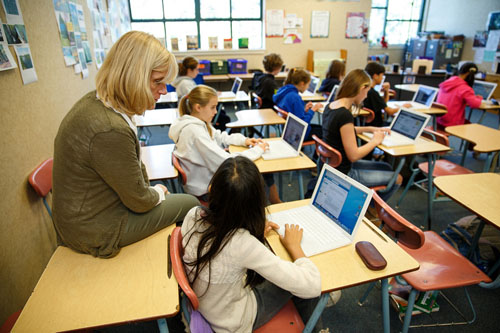
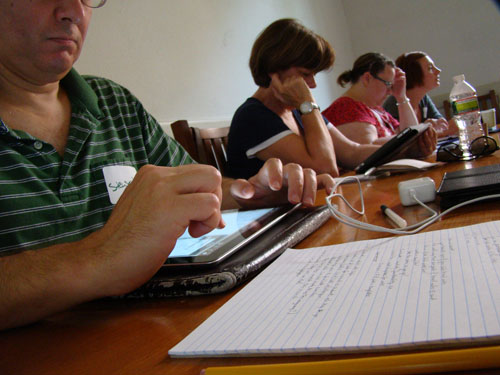
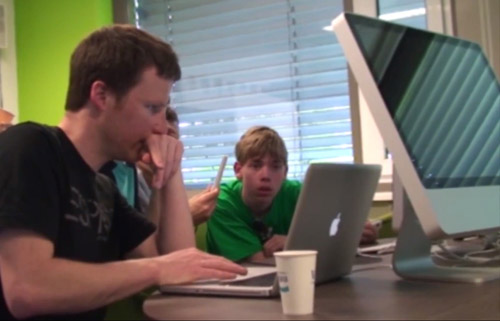
תגובות אחרונות